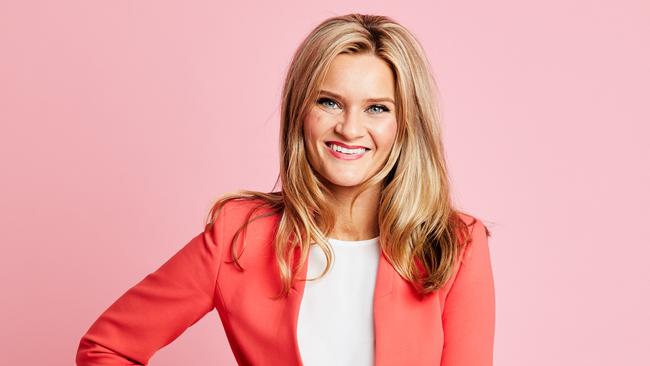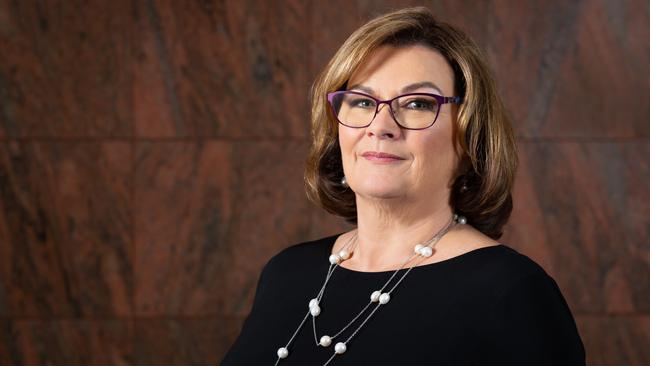Women hit hardest by rising stress from household financial squeeze
Finance specialists share ways for women to combat surging living costs and the extra stress it is creating across Australia.
Women are finding Australia’s cost-of-living crunch tougher than men, largely because of longstanding discrepancies in pay, savings and household roles.
As research shows women are feeling more money stress and their savings are dropping faster, financial specialists urge them to control their expenses and wealth through communication, education and action.
A News Corp Australia financial health survey last month found financial pressures rising for both sexes, with 70 per cent of women reporting an increase since early 2022 compared with 59 per cent of men.
More than three out of five women reported their savings had decreased, and 80 per cent were concerned about a recession in 2023 compared with 72 per cent of men.
UNIQUE CHALLENGES
Author and Ladies Finance Club founder Molly Benjamin says both men and women are doing it tough, but women face unique challenges including living longer, earning less, expensive childcare and time away from the workforce to have children.
“This means we retire with less and have less money to buy a property or to invest, to put in an emergency fund and feel financially secure,” she says.
“Therefore, when the cost of living goes up, we feel it and we feel more vulnerable.

“There are around one million Aussies single-handedly supporting a dependent – four out of five are women. I have had women in my membership who actually take home less pay by working than if they were on government benefits due to the nature of childcare being so expensive. That is just crazy.”
Benjamin says the most important lesson in her new book, Girls Just Wanna Have Funds, is simply to take action.
“You can read all you want, but unless you’re willing to take action, it doesn’t matter,” she says.
You may need to change your mindset around money, Benjamin says.
“If you’re constantly saying ‘I’m so bad with money’ or ‘I’ll never be able to afford a property’ your brain will believe it,” she says.
JBS Financial Strategists CEO Jenny Brown says increased financial pressure felt by women reflects their tendency to do more of the grocery shopping and oversee household bills.
“I think they are more across what the cost of living is,” she says.
“My husband says ‘I was reading that power bills have gone up’. I say ‘yeah, I know – I’m the one who’s paying it’.”
DON’T MISS OUT
Women continue to battle the gender wage gap, too. “Guys are a lot more wired to ask for salary increases and climb the corporate ladder, whereas women as a whole aren’t,” Brown says.
“If they don’t ask, they don’t get, and they often miss out.”
Lower levels of savings and super also have an impact, Brown says.
She says members of a couple need to share financial management and discuss money issues “so the worry is not on one person”.
“A problem shared is a problem halved.
“I fear the cost of living is only going to get tougher. Know where your money is, whether you are being paid appropriately, where it’s going and know your bills.”

Benjamin suggests calling some recruiters, looking online or speaking with colleagues to work out if you are being paid what you are worth.
“It’s time to get really familiar with where your money is going and take back control of it,” she says.
“Get your bank statement out and fill out an ‘old you budget’ with your current spending – this will also give you realistic figures – and then a ‘new you budget’ with where you want your money to be going.
“Ditch the debt and get rid of any credit cards, buy now pay later or personal loans. If you don’t need money in the short term, then learn to invest it.”
COPING WITH THE COST CRUNCH
• Talk to a mortgage broker or banker about the best loan structure for you.
• Negotiate your bills at least once a year to get the best deals.
• Ensure you have access to government schemes such as first homebuyer incentives and childcare subsidies if you are eligible.
• Recognise your negative beliefs about money that may be holding you back, and set new positive messages.
Source: Ladies Finance Club






To join the conversation, please log in. Don't have an account? Register
Join the conversation, you are commenting as Logout